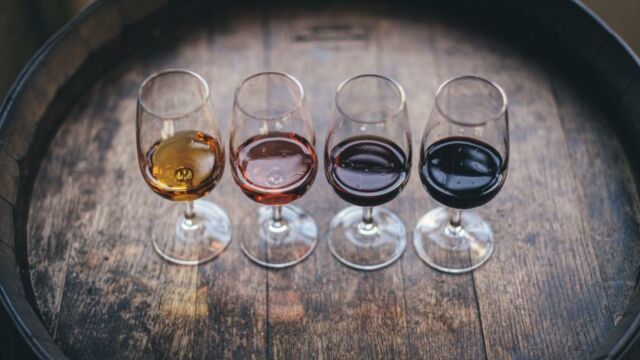From the yellow wine of the Jura to the rosé of Provence and the blue wine of Spain, wine has diversified over the course of its thousand-year history, creating a chromatic palette that today forms a veritable rainbow. Yet many purists swear by red and white!
Discover our latest podcast
What's the difference between red and white wine fermentation?
Right from the start, white and red wines have been worlds apart. White wine is made by fermenting must from grapes with colorless pulp. Their skins, on the other hand, can be white or black. White winemaking avoids maceration of the grape skin in the juice. This is the key to obtaining an elixir with golden reflections.
Red wine, on the other hand, is made exclusively from the fermentation of black grape must, including skins and seeds. This process is called cuvaison, and can last from a week to nearly a month.
Red and white wine: why such a difference in taste?
In addition to their color, these distinct winemaking processes give red and white wines very different aromas.
Red wine contains tannins from the skins, seeds and stalks of the grapes, which are sometimes included in the long maceration process. White wine, on the other hand, does not benefit from this stage. As a result, it is very low in tannins and therefore less powerful on the palate than its red counterpart. But the differences between the two beverages don't stop there.
Which wine is better for your health? White or red wine?
Different colours, different flavours, and even different health benefits! White and red wine do not have the same health benefits. Studies have shown that moderate consumption of wine can benefit the heart and even reduce the risk of type 2 diabetes. But when it comes to toasting your health, which wine is best for you: red or white?
Courtney Kalamar, a registered dietitian at Piedmont Henry Hospital, explained:
If you compare red wine to white wine, the [health] benefits are related to red wine consumption. This is partly because the grape skin is included in the fermentation of red wine.
In fact, grape skins contain many antioxidants.
Red wine: an agent against breast cancer
A study published in 2011 shows that red wine may also prevent breast cancer. Researchers at Boston University Medical Centre studied variations in female hormone levels according to the type of wine consumed - red or white - to determine the possible effects on their health. 36 women, aged 36 on average, drank a small glass of red wine a day for a month, then switched to white wine for a further month.
It turned out that red wine increased free testosterone and reduced a protein to which most of the testosterone circulating in the blood binds, SHBG (sex hormone binding globulin), effects that were absent when women drank white wine, leading scientists to hypothesize that red wine is a genuine anti-cancer agent. The researchers add:
These data suggest that red wine is an aromatase inhibitor [provided by diet] and may explain the observation that red wine does not appear to increase the risk of breast cancer.
However, we advise you to drink these wines in moderation!
Read more:
⋙ Here's why mixing alcohol with Diet Coke gets you drunk faster than regular Coke
⋙ How long does it take for alcohol to leave your system?
⋙ This is what your favourite alcoholic drink says about you
⋙ This is how much your first sip of alcohol may have changed your brain, according to study
⋙ Drinking alcohol-free wine is just as good for the heart
This article has been translated from Gentside FR.
Sources used:
Piedmont: Which wine is healthier for you—red or white?
National Library of Medicine: Red versus white wine as a nutritional aromatase inhibitor in premenopausal women: a pilot study















